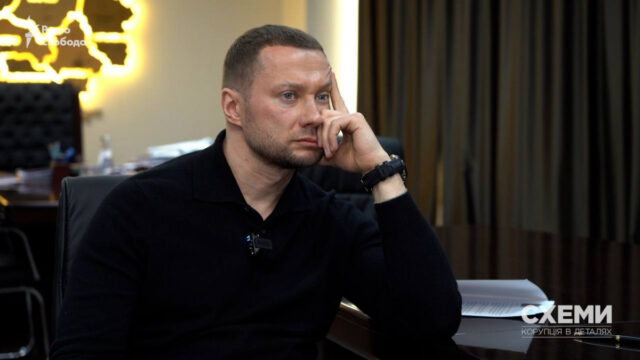Understanding the Recent Legal Action Against Pavlo Kyrylenko: What You Need to Know
In a significant development, the Specialized Anti-Corruption Prosecutor’s Office (SAP) and the National Anti-Corruption Bureau (NABU) have taken decisive legal action against Pavlo Kyrylenko, the head of the Antimonopoly Committee. This situation has raised eyebrows, highlighting the ongoing fight against corruption in public office and the importance of transparency in governance.
Charges and Investigations: A Closer Look
Kyrylenko is facing serious allegations of «illegal enrichment» and the «declaration of unreliable information.» Such charges can have profound implications, not only for Kyrylenko but for public trust in governmental institutions. This legal action stems from a meticulous investigation led by journalists from the «Schemes» project (a part of Radio Liberty), who unveiled that relatives of Kyrylenko’s wife had acquired high-value properties that starkly contradict their reported income.
According to SAP’s statement, on a specific date, information was added to the Unified Register of Pre-Trial Investigations about the alleged criminal offenses under articles 366-2 and 368-5 of the Criminal Code of Ukraine. This indicates a serious commitment to pursuing justice in cases of potential corruption, showcasing the hard work of dedicated law enforcement and investigative teams.
The Depth of Wealth: What’s at Stake?
The “Schemes” investigators reported that Kyrylenko’s relatives own elite properties worth around 70 million hryvnias. This portfolio includes a luxury house in the Kyiv region, upscale apartments in Uzhgorod, and other undisclosed properties in the capital. To put this in perspective, that’s enough wealth to buy multiple average homes in Ukraine – a reality that raises eyebrows among concerned citizens who question the legitimacy of such acquisitions.
Why This Matters
Understanding the implications of these allegations is crucial for several reasons:
- Accountability: Every public official must be held accountable for their financial activities, especially when they have access to public funds.
- Transparency: The citizens deserve clarity about how their leaders acquire wealth and whether they are acting in the public’s best interest.
- Restoration of Trust: Investigations like these are vital in restoring public trust in institutions, especially in a time when skepticism about government integrity is prevalent.
Real-Life Implications and Expert Insights
Experts argue that cases like Kyrylenko’s are critical in setting precedents. For instance, research indicates that countries with stricter anti-corruption laws tend to have higher levels of public trust in government and better economic outcomes. According to a report by Transparency International, nations that strengthened their anti-corruption frameworks witnessed a 20% increase in public trust over five years. This demonstrates a direct correlation between transparency and governmental efficacy.
Moreover, as citizens, it’s essential to remain informed and engaged. You can follow news outlets like Radio Liberty, local newspapers, and trusted online resources to stay updated on this unfolding situation. Participate in community discussions to understand different perspectives and foster a culture of transparency and accountability in your area.
Moving Forward
The investigation of Pavlo Kyrylenko serves as a powerful reminder of the importance of vigilance and accountability in public service. It underscores the responsibility of both governmental institutions and the media to uphold integrity and transparency. As events develop, it will be interesting to see how this case impacts public perception and ultimately shapes the future of governance in Ukraine.
In these challenging times, it’s the duty of every citizen to advocate for transparency and hold public officials accountable. By doing so, we collectively contribute to a more just and equitable society. Stay tuned for more updates as this significant story continues to evolve.






